Years after a racial inequities complaint was filed against Brevard Schools, questions linger
It's been more than 10 years of unanswered questions for William "Bill" Gary.
In spring 2013, the Brevard civil rights activist filed a complaint with the U.S. Department of Education about Brevard Public Schools. The complaint raised concerns about the disproportionate rates of discipline of Black students; the closure of three schools that served predominantly Black students while schools with high white student populations were kept open; and the district's practices related to hiring and promoting Black teachers.
At the time, there had been one Black high school principal in the previous 25 years, and there were only six minority principals.
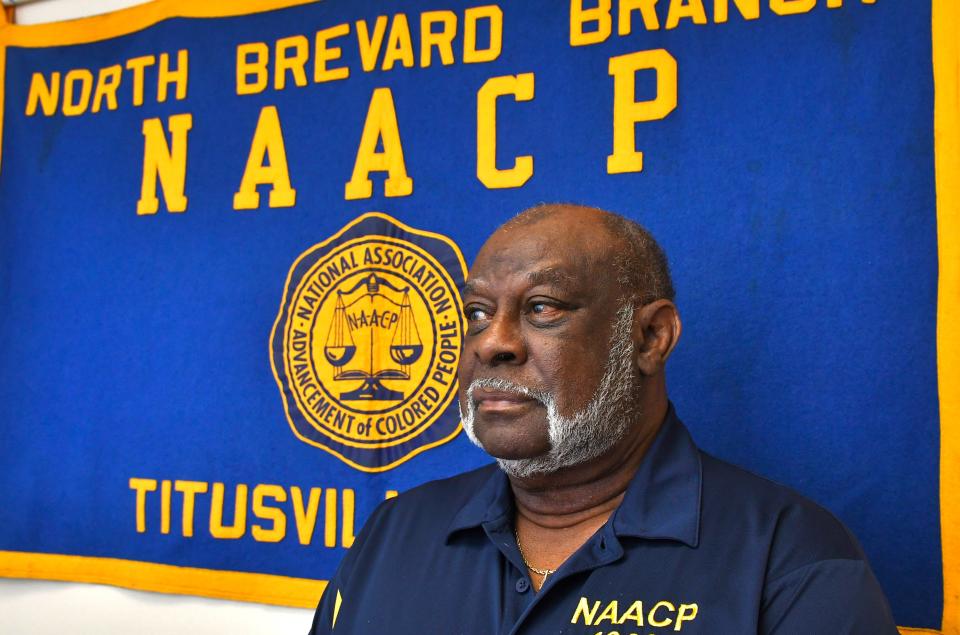
"We are urging you to at least take a look at a district that receives millions in federal funding to justify its actions and do a better job of treating its minority teachers and students on a more equitable basis," wrote Gary, president of North Brevard NAACP.
An investigation was opened by the Department's Office of Civil Rights, according to correspondence between Gary and the Department of Education obtained by FLORIDA TODAY.
Much has remained the same at Brevard Public Schools since that complaint was filed: Black students are more likely to be disciplined than students of any other race. Even when overall discipline rates have fluctuated, the percentage of Black students facing discipline referrals has stayed about the same year after year in a district where they see few Black teachers in the classroom.
Brevard Public Schools has put some measures in place to address these concerns. If a school records a large number of suspensions for a particular student demographic, it's flagged and a plan is developed to address the issue. The district has run meetings for at least two years to hear from Black community leaders and others concerned with inequities within the schools. In 2020, they hired a director of equity and diversity, though she resigned upon her role being moved under the umbrella of human resources in 2023.
Discipline, including what teachers described as out-of-control student behaviors, spiked as a major issue of concern after the last school board election and was cited by some as a reason they'd lost faith in then-Superintendent Mark Mullins. The school board promised a complete revamp that would lead to tougher action and give teachers more support. At the time, Sheriff Wayne Ivey, standing with then-School Board Chair Matt Susin, outside the Brevard County Jail promised "a brand new day" for discipline inside Brevard schools.
Some changes have been rolled out already while others remain in the works, but one thing has remained consistent: Numbers are already showing high rates of discipline among Black students similar to years past.
The persistent disproportionality in discipline and a perceived lack of progress within the district could have dramatic impacts on students, Gary said.
"This is an attempt to keep children in school," Gary said. "If a student in a middle school is suspended from school, the chances are, that student is eventually going to drop out of school. And once they drop out of school, then they are going to get involved in some kind of criminal activity, and then they end up in the criminal justice system."
Student discipline: What the numbers tell us
During the 2022-2023 school year, Brevard had a student population of 74,061, according to the Florida Department of Education. Of that population, the 10,892 Black students made up about 14.71%.
That same year, there were 83,226 total reported discipline incidents, according to data from Brevard Public Schools. About 32.88% of these incidents — or 27,367 — involved Black students. To put that in perspective, that number is equivalent to every single Black student in the district facing at least two disciplinary referrals last year.
While the overall number of discipline incidents has fluctuated from year to year, the proportion of Black students being disciplined has remained consistent.
Bernard Bryan, education chair of South Brevard NAACP, has spent the past five years working with school advisory committees at multiple Brevard schools, attending board meetings and analyzing discipline statistics from the district. As a former engineer, he's been responsible for reviewing discipline referral numbers from past years and has found the consistently disproportionate rates of discipline discouraging.
From 2019-2020 through at least part of the 2021-2022 school year, “willful disobedience” was the most commonly reported incident, followed by “out of area,” “classroom disruption,” and “physical aggression.” Fights were low on the list of issues leading to discipline.
And every year, Black students were overrepresented to nearly the same extent.
Data like this, along with statistics related to graduation rates and reading levels, are things Bryan often brings up at school board meetings.
"No matter what your poverty levels are, no matter what your background is, no matter what your race is, we've got to treat every kid the same," Bryan said. "This is the data, this is what I'm looking for, this is the win factor."
The data, shared with FLORIDA TODAY, showed the proportionality of discipline referrals for Black students fluctuated very little, ranging from 33.73% to 34.98% from the 2019-2020 year to partway through the 2021-2022 year.
The rate of white student discipline also changed very little between 2019-2020 and 2022-2023, ranging from 43.22% to 44.02% of incidents.
Data from the 2018-2019 and 2022-2023 school years showed Black students were also disproportionately referred to Alternative Learning Centers, an option for some students who would otherwise face expulsion. The first year, there were 237 referrals for Black students, making up 41.58% of all referrals, while in 2022-2023, there were 330 referrals, 37.93% of all referrals. White student referrals made up 42.07% and 33.51% of referrals consecutively.
Lavander Hearn, Cocoa's deputy mayor, former substitute teacher for BPS and a 2008 graduate of Cocoa Jr./Sr. High School, said he experienced that discipline firsthand.
Hearn, who graduated in spring 2023 with a master's in emergency management from University of Florida, recalled his elementary school years being plagued by discipline referrals. At the time, he was growing up in a household experiencing drug abuse issues.
"There were some times where I would get disciplined, I would get sent to detention, and I didn't even understand why I was being sent to detention," he said.
Things improved in middle school and high school, where he said he didn't recall ever receiving a detention. But those elementary school years were difficult as Hearn struggled with his home life.
"There were a lot of things that I couldn't articulate, so I would speak or act it out through not behaving my best," he said.
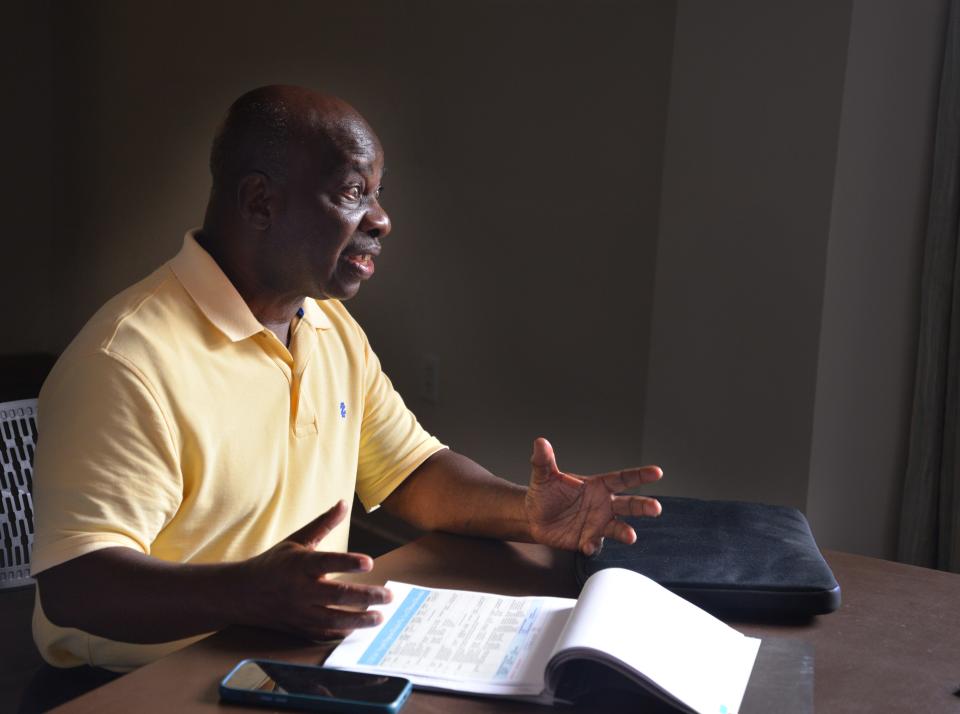
While all Black students face a higher risk of discipline, students who are both Black and disabled face an even bigger risk.
Disabled students of all races were the second most likely group to be impacted by suspensions in the first quarter of both this school year and last school year, with Black non-disabled students being No. 1, according to an Oct. 31 presentation by student services. A previous presentation on Aug. 22, presented by BPS' director for program support in student services Kimberly Bias, showed that Black disabled students have been the most impacted compared to other disabled students.
During the presentation, which Bias gave at a school board work session, Bias said each race should be at an equal ratio of receiving in- or out-of-school suspensions, and that a 50% — or value of three or higher — puts the level of disproportionality into the "red zone" for the state.
Disabled Black students who experienced out-of-school suspensions were in that red zone during the 2021-2022 school year, with these students undergoing a "significant disproportionality in discipline" by being suspended out of school for more than 10 days. The value for that year was 3.27, while in 2020-2021 it was 3.03. In 2022-2023, it was 2.58 — below BPS' target of 2.97, but above all other races. All other races had values below two.
BPS was also in the "red zone" for 2022-2023 for in-school suspensions of more than 10 days for disabled Black students, with a number of 3.47.
That same system of tracking suspensions was applied to all students during the Oct. 31 work session and showed that despite changes in discipline procedures, Black students during the first quarter of the year were at a risk of 2.6376 — a slight decrease from the previous year's risk of 2.783. All other students, except non-gifted disabled students, were below a value of 1.25 for the first quarter of this year.
Bob Barnes, founder of after-school reading and math program Aspiration Academy for low-income families, said these issues are nothing new, and that even if some aspects of the district are good, the inequities can't be ignored.
"When you start comparing Brevard Public Schools to other schools in Florida, we're ... pretty good," he said. "But that doesn't mean there aren't the problems, and those problems, no matter how good collectively the school system is ... the reality is, that within the Black and brown community, it's a disaster, and has been a disaster for the 28 years I've lived in Brevard County."
Lack of consistency, misunderstanding of students
At BPS, there are five disciplinary levels, which classify behaviors based on their severity and the potential threat they pose to students or others within the district. For those in sixth grade and under, an example of a level one offense would be cheating, while possession of a weapon would be a level five offense. Where a behavior ranks on a level differs slightly for those in grades 7 through 12, and each level has different disciplinary actions.
But it's not always applied the same, Gary said.
"Throughout the district, the different clerks would put in different things for the same infraction," he said. "There was no consistency."
Former Superintendent Desmond Blackburn, the district's first and only Black superintendent, noticed these inconsistencies in 2016, the year after he was hired. Data showed that students living in poverty, disabled students and Black students were suspended and expelled at rates triple their enrollment.
The following year, Blackburn implemented a plan to address discipline inconsistencies. The plan included social emotional support through interventions like relaxation rooms, daily check-ins with school counselors or reflective assignments.
He also developed the disciplinary level system the district uses to this day, creating more specific corrective strategies for certain infractions.
But in 2020, after Blackburn's departure and under Mark Mullin's tenure as superintendent, district officials said the discipline plan had made Brevard a state leader in suspensions and expulsions without addressing student behaviors.
To address these behaviors, then-assistant superintendent Christine Moore said the district would implement a four-prong plan that included classroom practices to encourage positive teacher-student relationships; lessons for students on regulating emotions and building trust and empathy; changes to school culture to create a safe environment with proactive supports; and a larger focus on student mental health.
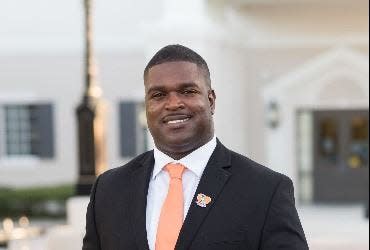
Despite changes in district procedures over the years, consistency on how the discipline policies are applied has remained an ongoing issue, said Anthony Colucci, president of Brevard Federation of Teachers.
"For the past three years, the Brevard Federation of Teachers has been shining a light on the multitude of issues related to student discipline," he said in a statement to FLORIDA TODAY. "One of the major issues we were concerned about was a lack of adherence to the district’s discipline plan, which was created to address racial inequities."
An audit of the district's discipline processes, completed in March, identified BPS' main problem as a lack of a centralized office that handles discipline. Responsibility rested on teachers, principals and administrators, which led to confusion and room for mistakes, said Sue Hann, then-acting superintendent.
Though some changes have been implemented based off the audit, Superintendent Mark Rendell opted not to create a centralized office with a cabinet position as the audit recommended, instead splitting the responsibility of overseeing discipline between Chief of Schools James Rehmer III and student services.
Another issue is teachers' lack of cultural knowledge.
Gloria Bartley, vice president for North Brevard NAACP and their former education chair, gave an example of a middle-schooler being late to class because it was her responsibility to get her siblings ready for elementary school — a common scenario for Black students, she said.
"The teacher comes, and it escalates," she said, adding that these issues ultimately lead to suspensions.
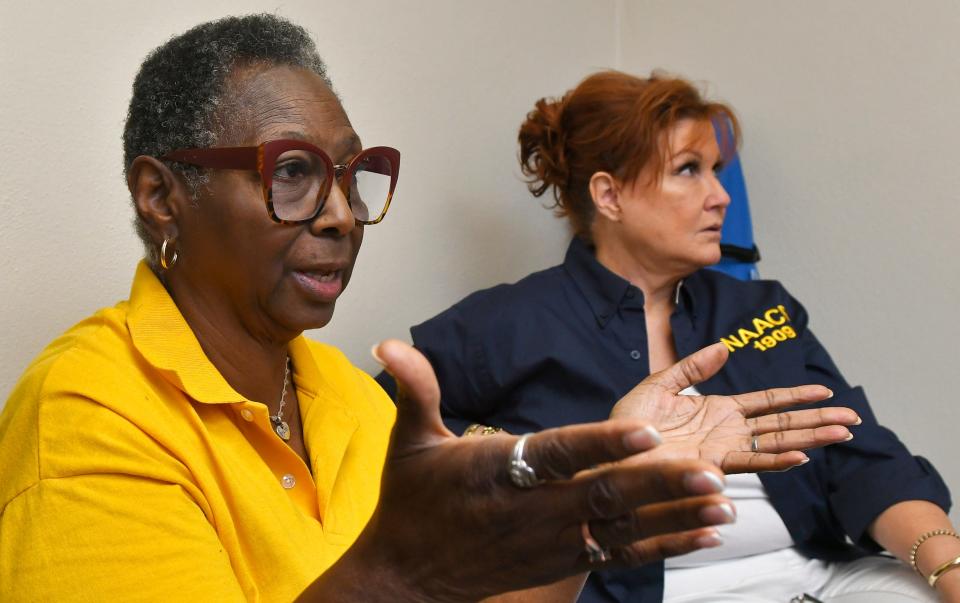
In the past, Brevard has offered optional training through the Conscious Discipline Institute, which teaches school staff to implement social and emotional learning — techniques that give students interpersonal skills and self-awareness to deal with emotions and resolve conflicts.
They also use Positive Behavioral Interventions and Support System, the goal of which is to reduce undesirable behaviors, teach alternative skills and acknowledge appropriate behaviors.
While the Positive Behavioral Interventions and Support System is still used by the district, the school board opted over the summer to discontinue the use of Conscious Discipline.
Teachers, closure of schools: inequity beyond discipline
Gary's 2013 complaint to the Department of Education went beyond discipline, alleging that Black people were unrepresented in BPS' teacher, principal and administrator ranks.
In the 2019-2020 school year, that remained true, with the distinct having just 247 Black teachers — 5% of the total teacher population. That same year, there were 4,000 white teachers, who made up 85% of the teacher population.
There were nine Black principals and 13 Black assistant principals, each equal to 9% of their given population. As for district level administrators, Black administrators — of which there were three — made up 5% of administrators.
FLORIDA TODAY’s request for more recent data from the district went unanswered.
In 2020, Hearn became a substitute teacher because he felt he might be able to make a difference in the lives of at-risk children. His own childhood experiences helped guide him in handling kids who may have been tough for others to deal with, he said.
"I would tell (the district) to give me the worst class, and I would never have any issues," he said. "I understood some of those barriers, and I knew how to navigate around it."
But in January, he was removed when the district accused him of omitting information related to his criminal record on his job application — something he said he does not recall doing.
His removal came after school board vice chair Gene Trent passed along a complaint from his former campaign manager, Jennifer Parrish, while Trent was under investigation for withholding information about his own record on his teacher application. While Hearn's investigation took less than a week, Trent's investigation lasted more than five months before he was eventually barred from teaching for a year. Trent was elected vice chair at the Nov. 14 board meeting.
Hearn said he fears Black teachers and other minority groups may be discouraged from working in the district because of the handling of his own removal.
"The racial tone has been pretty loud over the years in the school system, so I think that may have played a factor in discouraging certain marginalized groups from becoming teachers in the school system," Hearn said.
"When you have situations (like mine), that could deter minorities from wanting to get involved in the school system as well."
Bryan said he and his wife have spoken to students who reported never having a Black teacher until high school.
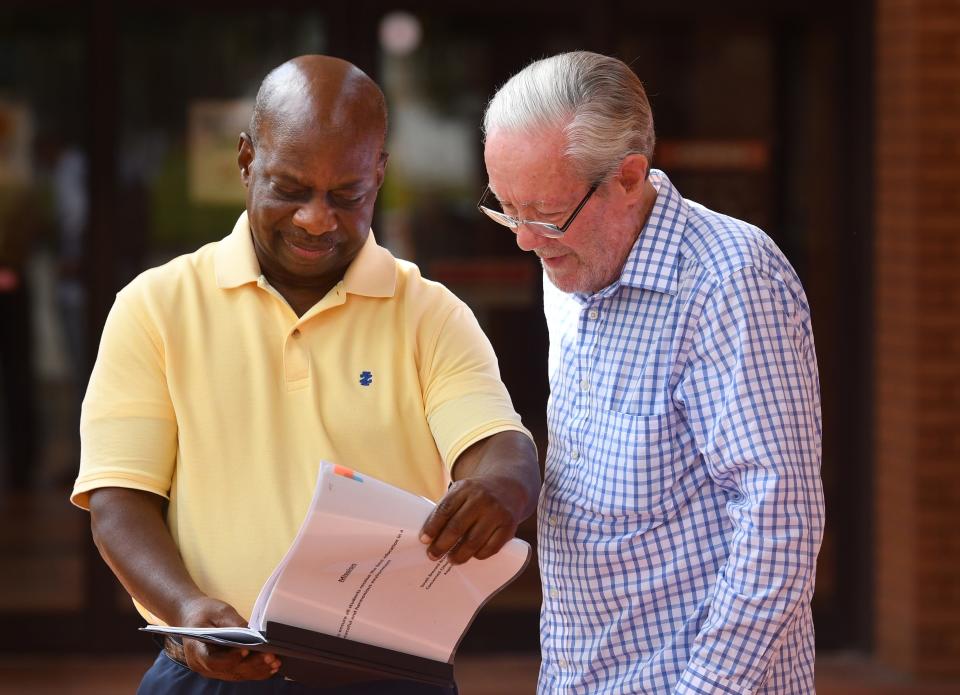
"It really stunned me," he said. "You need that confirmation that I can become somebody, that I can do this — I can become a teacher, I can become an engineer. You need that confirmation, especially when you're young."
Colucci said the union "fully supports efforts to hire more Black educators" and that more is being done since the passage of a resolution he helped push at BPS in partnership with Gary and the union that named Harry and Harriette Moore — Black civil rights activists killed by a bomb blast at their home in 1951 — teachers emeritus and declare they were unjustly fired in 1946.
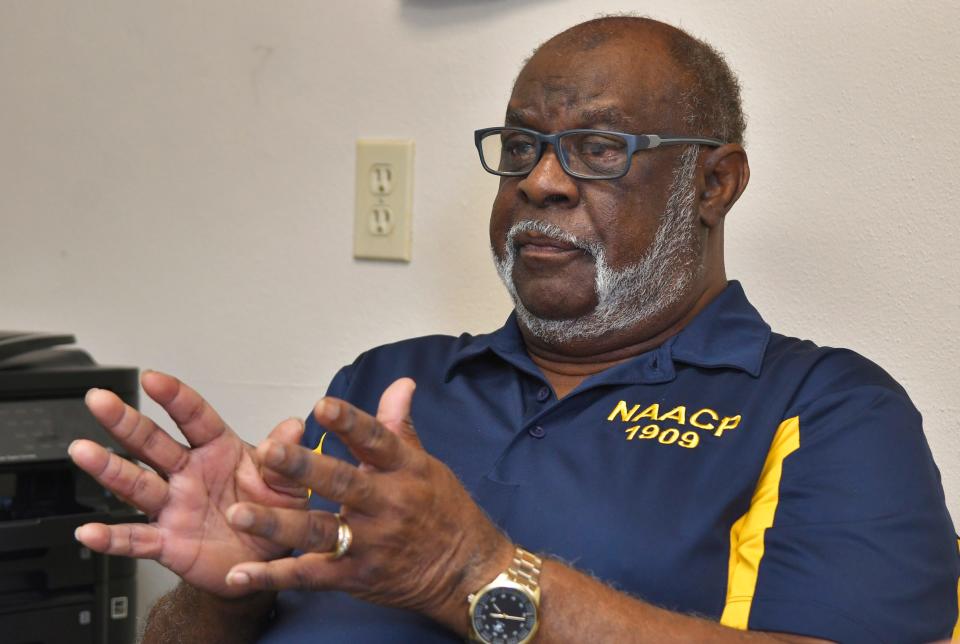
"We now offer an annual scholarship in (the Moores') honor that is awarded to a student attending an HBCU and is pursuing the teaching field," he said.
The 2013 complaint to the Department of Education also alleged that BPS had disproportionately closed schools serving minority populations. Riverview Elementary School in Titusville was closed in the 2011-2012 school year, with BPS’ school board voting to close Gardendale Elementary Magnet School, South Lake Elementary School and Clearlake Middle School the following year. They voted to keep open a fourth, Sea Park Elementary.
Gary said that in the 2011-2012 school year, Riverview ranked fourth for its minority population in the county, while South Lake ranked fifth in the 2012-2013 year among elementary schools based on its proportion of minority students. Gardendale, which was later converted into a school for disabled students with high support needs, was 16th out of 57 elementary schools, while Clearlake had the fourth-highest proportion of minority students among the county’s middle schools.
Sea Park ranked at 50th among the county’s elementary schools.
District: some issues addressed; other questions still unanswered
In late 2022, board member Matt Susin promised an overhaul of the district's discipline policies. Since then, student services has implemented new training for teachers related to discipline and updated the code of conduct. They also take schools with high rates of suspensions among certain populations under their wing, working with them to develop a plan to help lower suspension rates.
Rendell said there has been a "conscious effort to be consistent in enforcing the rules and student expectations."
"The result has been more consistent application of the expectations and appropriate consequences for misbehavior," he said in a statement to FLORIDA TODAY. "District level leadership monitors school data weekly and meets with individual school leadership if/when we see an area of concern. While some numbers may be higher, that is more likely the result of the consistent application of policies that was not happening prior."
The district is getting a jumpstart on next year’s policies, with workshops hosted by student services meeting four times over the course of the school year to discuss changes to the student code of conduct. The first meeting — which drew about 40 people — was held in October, with community members discussing improving definitions in the code of conduct and creating better guidance on disciplinary actions.
In 2021, the district began hosting Minority and BIPOC Community Leader meetings. These meetings function similarly to workshops, with representatives from various groups attending and sharing presentations related to diversity and equity.
While addressing inequities is something community members are pushing for, it's not a simple process for Florida districts. Under House Bill 7, or the Stop WOKE Act, which Gov. Ron DeSantis passed in April 2022, districts are barred from acknowledging how things like race may impact a person's life experiences.
This makes it complicated for a district to examine inequities and incorporate an understanding of racial or cultural differences into their policies.
“That’s kind of the perniciousness of the law,” said Jerry Edwards, staff attorney at American Civil Liberties Union Foundation of Florida. He added that it’s not even clear if a district can hold voluntary trainings for staff on topics such as unconscious bias.
“It’s kind of crazy that you have this racial bias that is causing Black students to be disciplined at significantly higher rates than, say, white students … and this law, by not allowing you to really get into those topics, to get into unconscious bias, to talk about systemic racism, really limits schools’ abilities to respond to this, because how do you take a colorblind approach to an issue that’s caused by racial bias?”
Ruth Gary, Bill Gary's wife and current education chair of North Brevard NAACP, is a former teacher from Polk County. She referenced training she took back in the '90s about cultural difference among students and how much it helped her understand those in her classes.
"I really believe, in my heart, soul, mind and body, that made a difference in how we interpreted what we then looked at as a discipline referral," she said.
When FLORIDA TODAY reached out to Rendell about changes that had been implemented in the district, he did not respond to any questions specifically related to how BPS is addressing inequities within the student body.
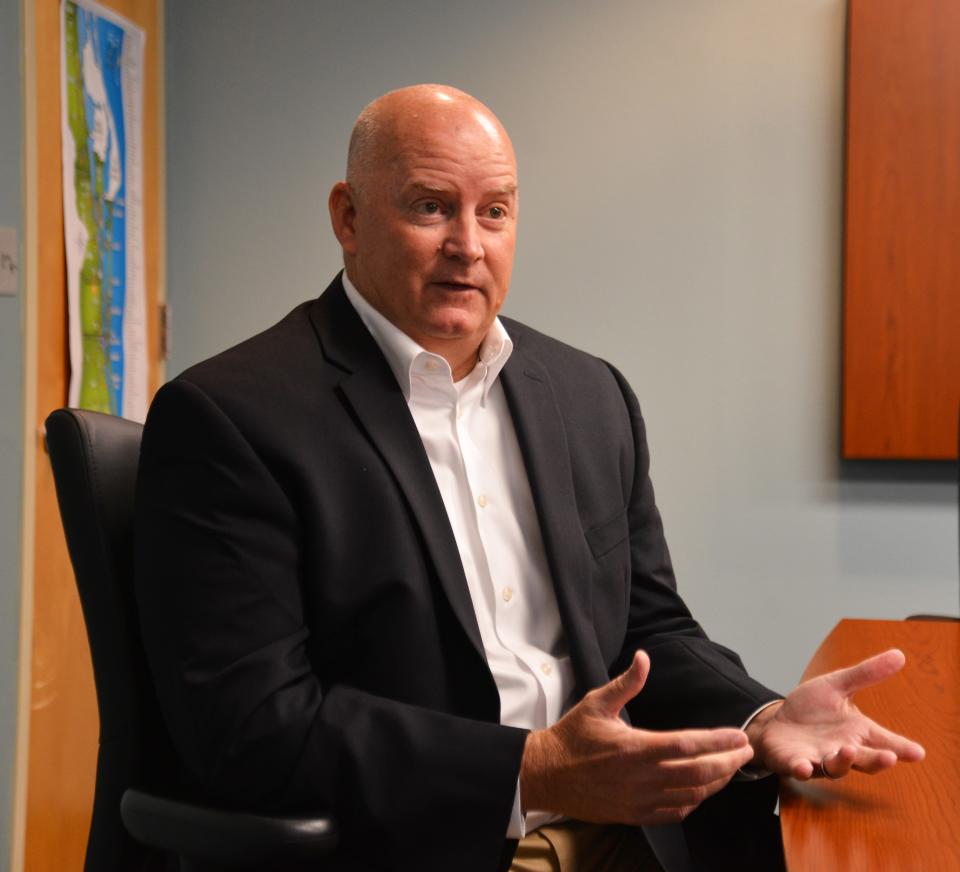
Outside the classroom: efforts to help students, involve community
Gary and Bartley haven’t given up on Brevard’s schools. But they do feel left in the dark.
Getting information has been a point of frustration for Gary and Bartley, who said they’ve gotten little communication from the Department of Education over the past decade. They also said BPS has not provided them with statistics as specific as they’d like. It’s led to confusion over the actual state of Brevard Public Schools, leaving them uncertain about how things may have changed since they first filed their complaint.
“We really don’t know what it looks like now,” Bartley said. “And we have repeatedly, repeatedly asked some of the community members, to the point where … it’s gas, it’s time, it’s effort to drive from Titusville down to the district (office) to a meeting, and we go, and we really don’t get any information. It’s a waste of time.”
On their own, they’ve visited churches, community centers and senior centers in an effort to inform parents and family members about what’s happening in the district and teach them to be invested in their children’s education. But even that is difficult without collaboration, Bartley said.
“We have to get parents to recognize you’re the biggest advocate for your child,” Bartley said. “It’s a combined effort — the district, the community, the NAACP … it’s an issue that is going to take all of us to come together, and to do it, we’ve got to have the right information.”
Despite the years-long endeavor and confusion, they still have hope.
In recent months, Ruth Gary has spoken with Rendell about the issues at the district, with Rendell attending some North Brevard NAACP meetings. Bill Gary is optimistic that they can hold a town hall in 2024 with Rendell and other BPS administrators to talk about statistics “in real terms” with parents.
“We need people who (have) those little kids going back and forth every day to be there,” he said. “They need to be there to hear this because they hold a stake in this much more than anybody else, and that’s been a challenge.”
Finch Walker is the education reporter at FLORIDA TODAY. Contact Walker at 321-290-4744 or fwalker@floridatoday.com. X: @_finchwalker.
This article originally appeared on Florida Today: Black students most likely to be disciplined in Brevard Public Schools

